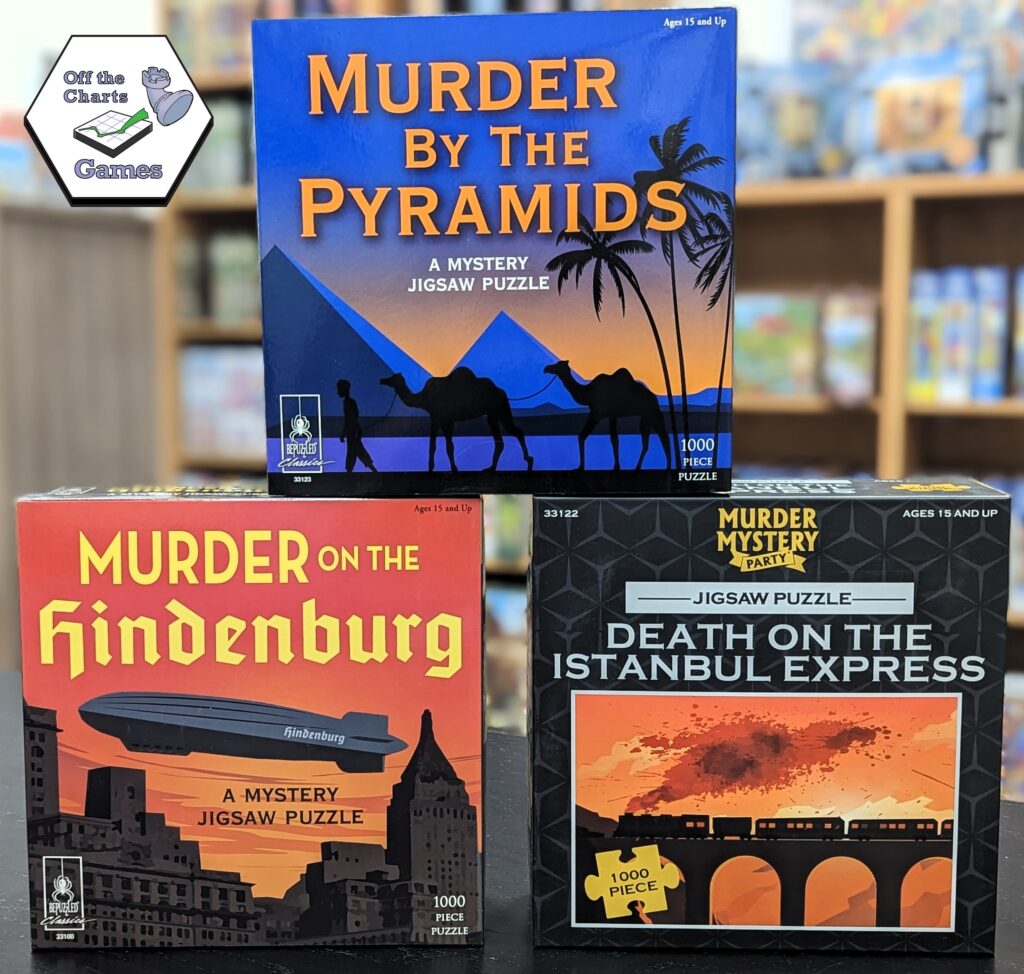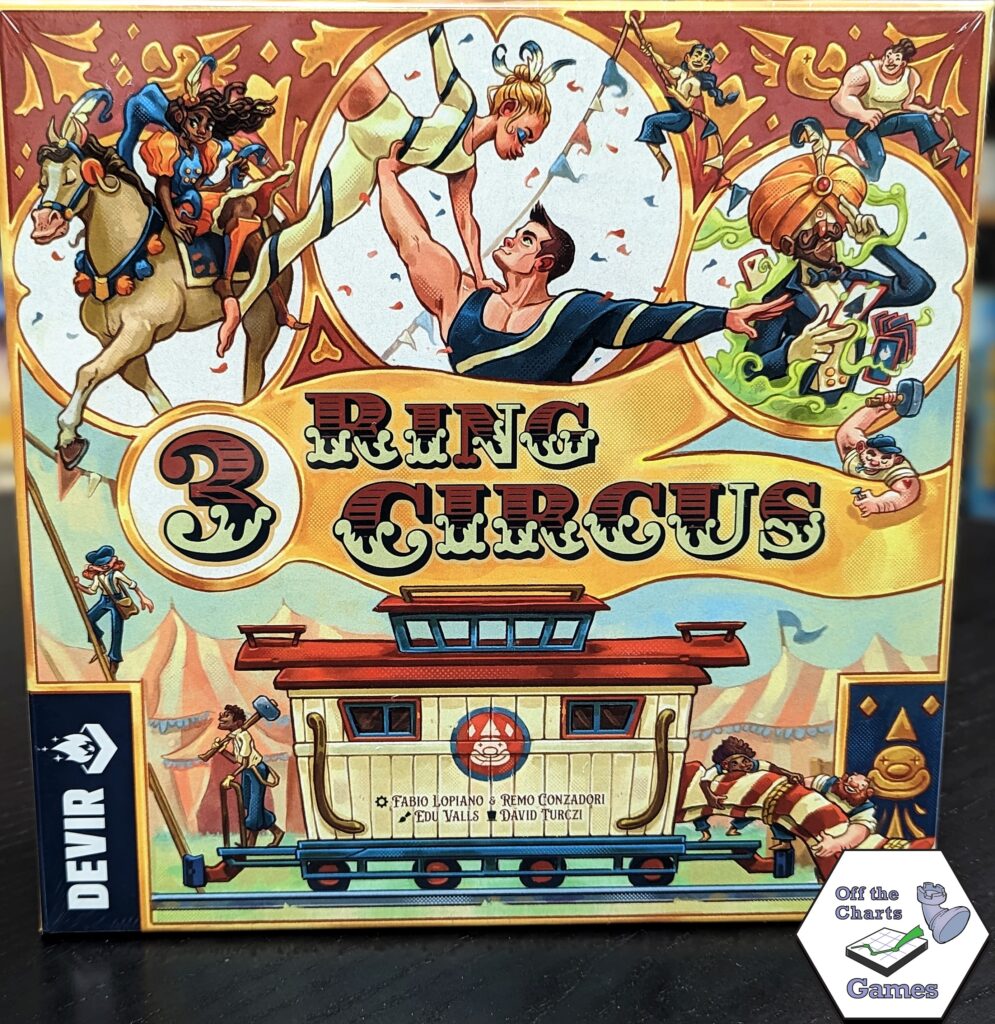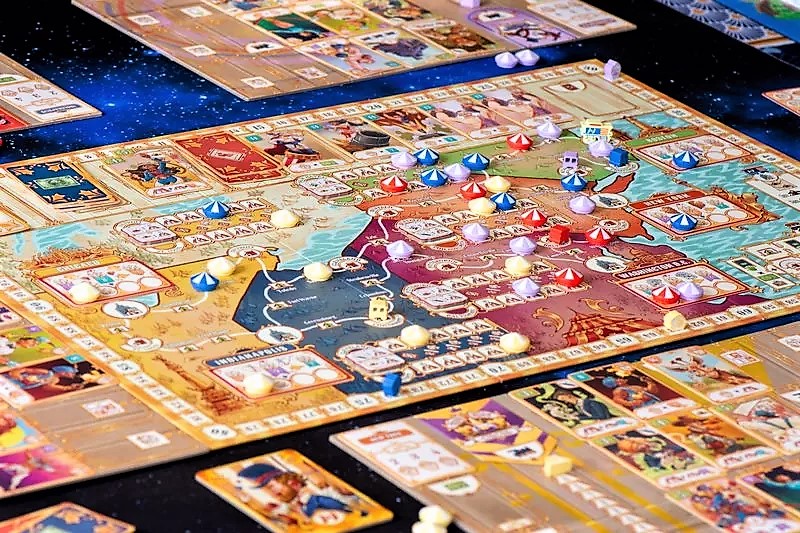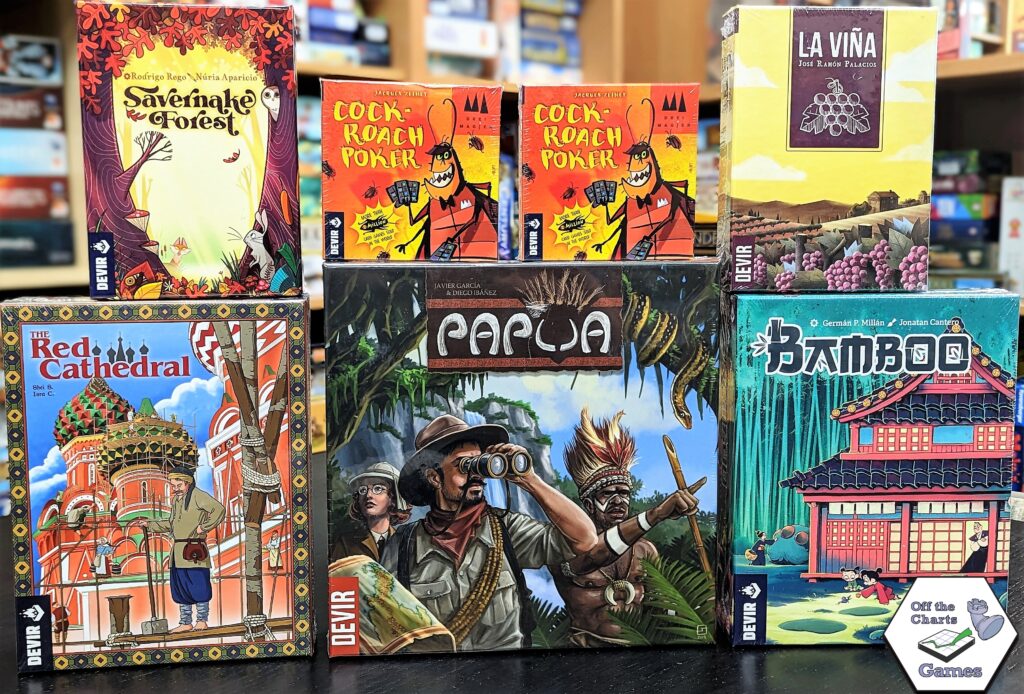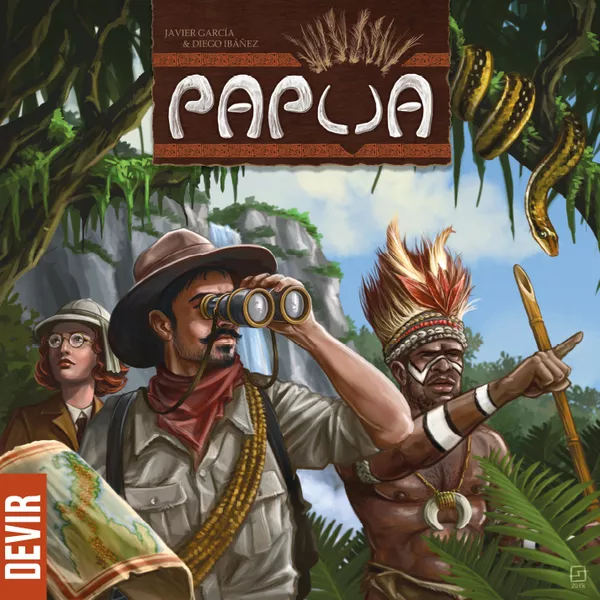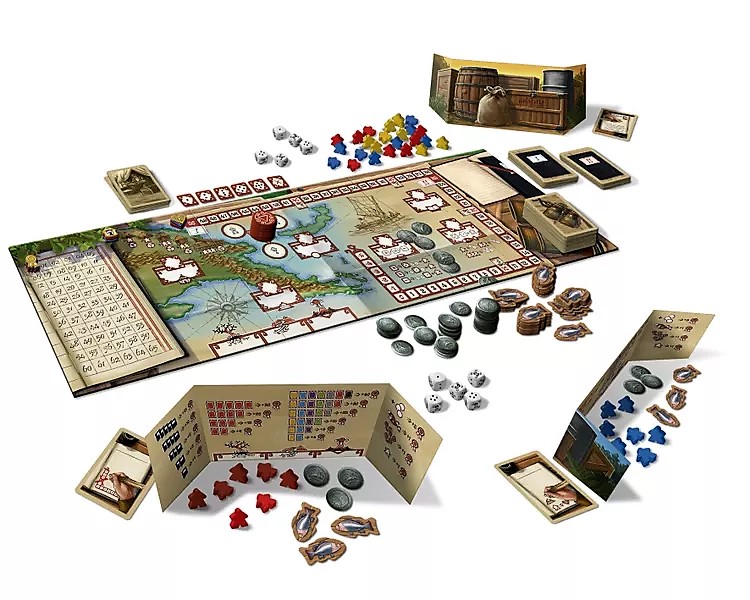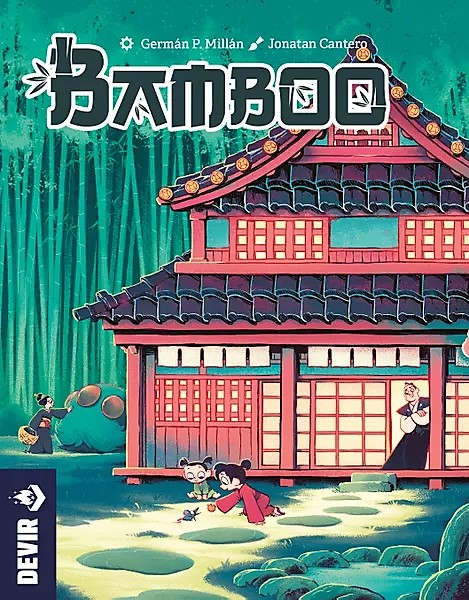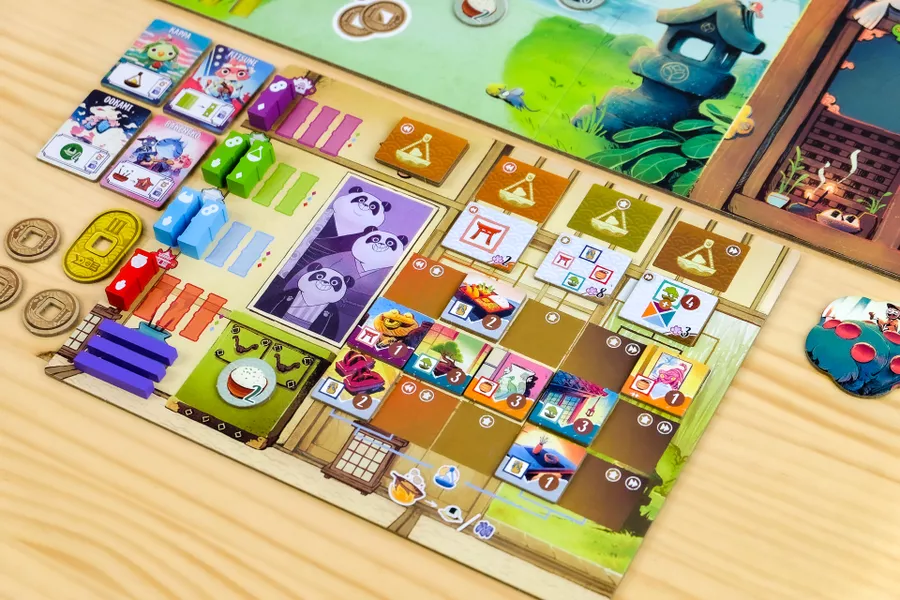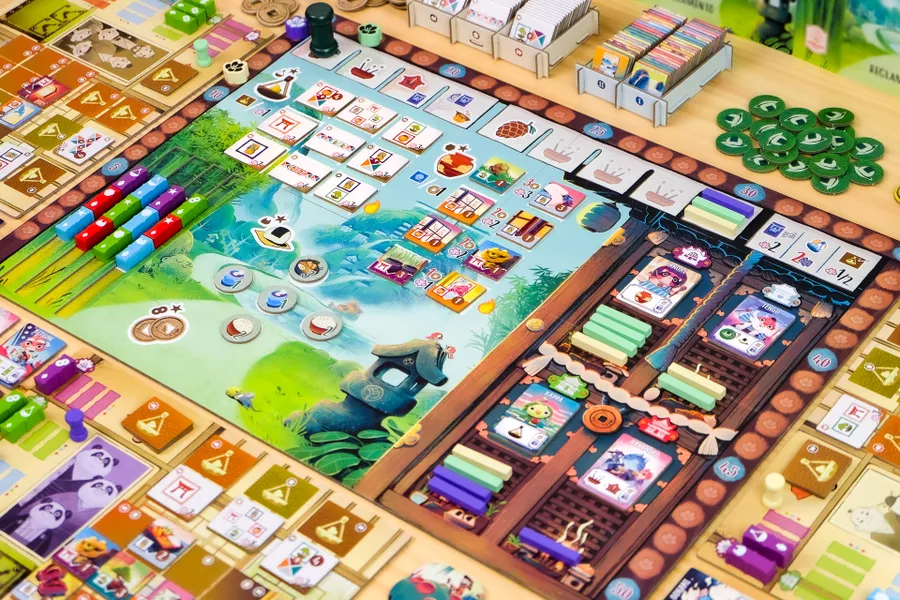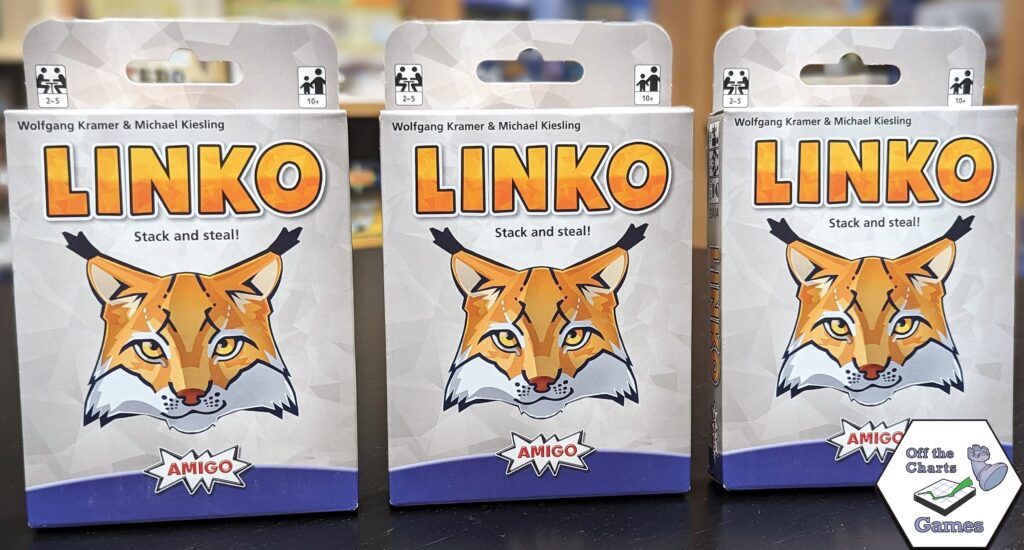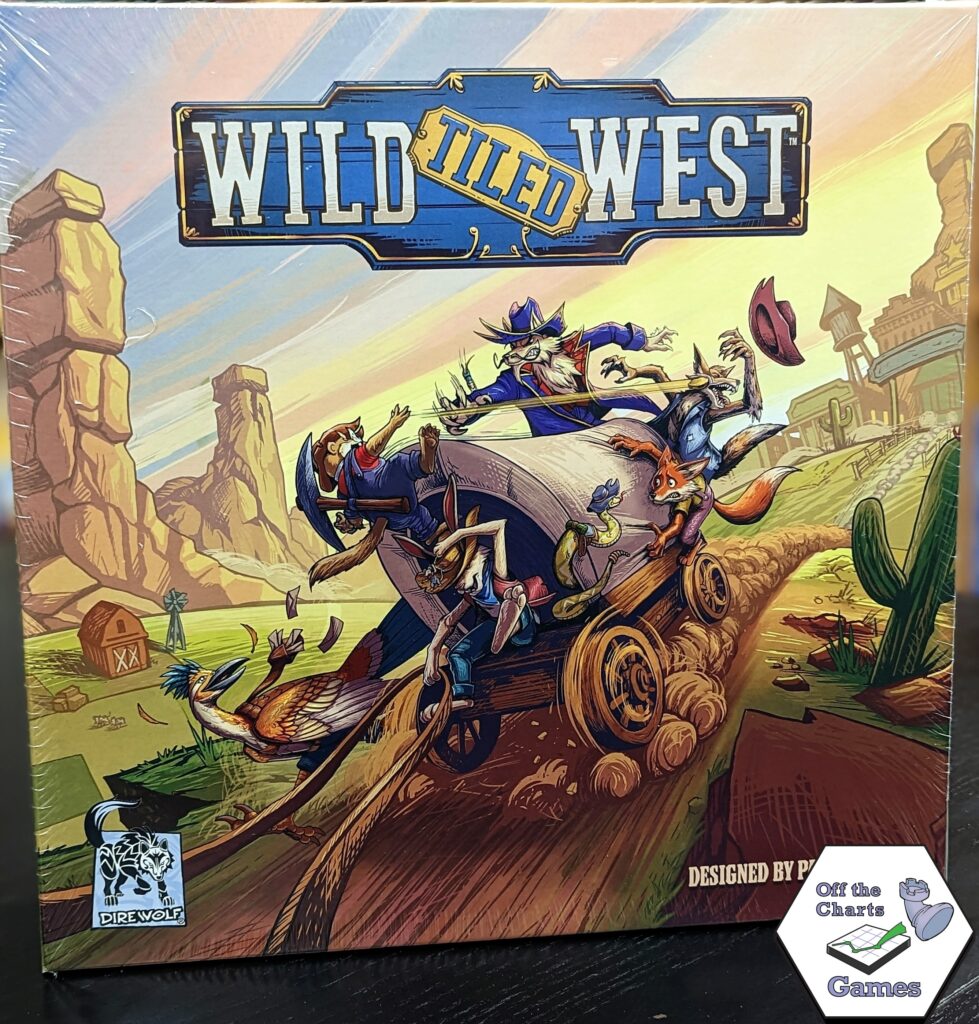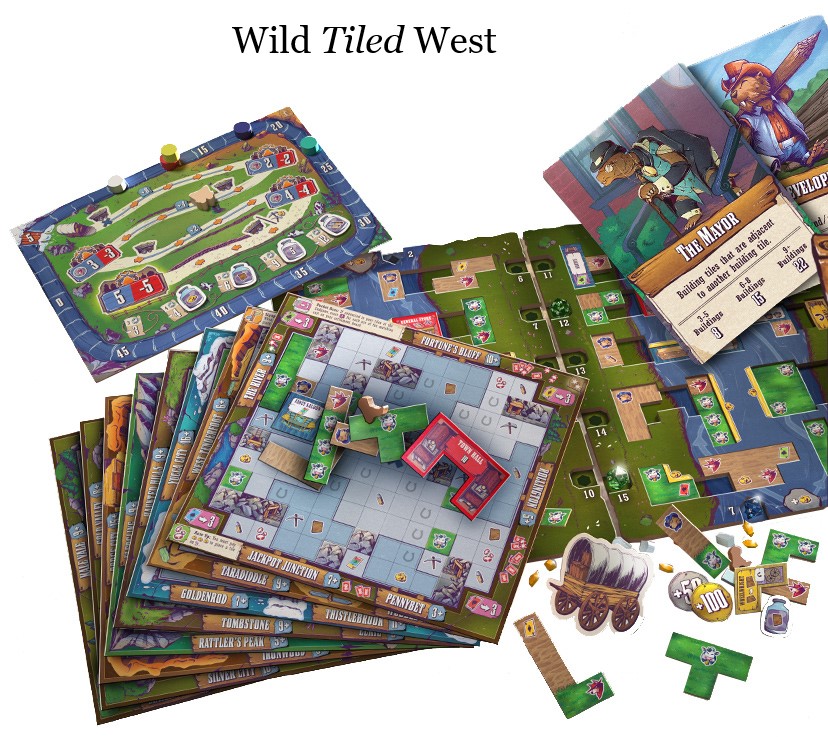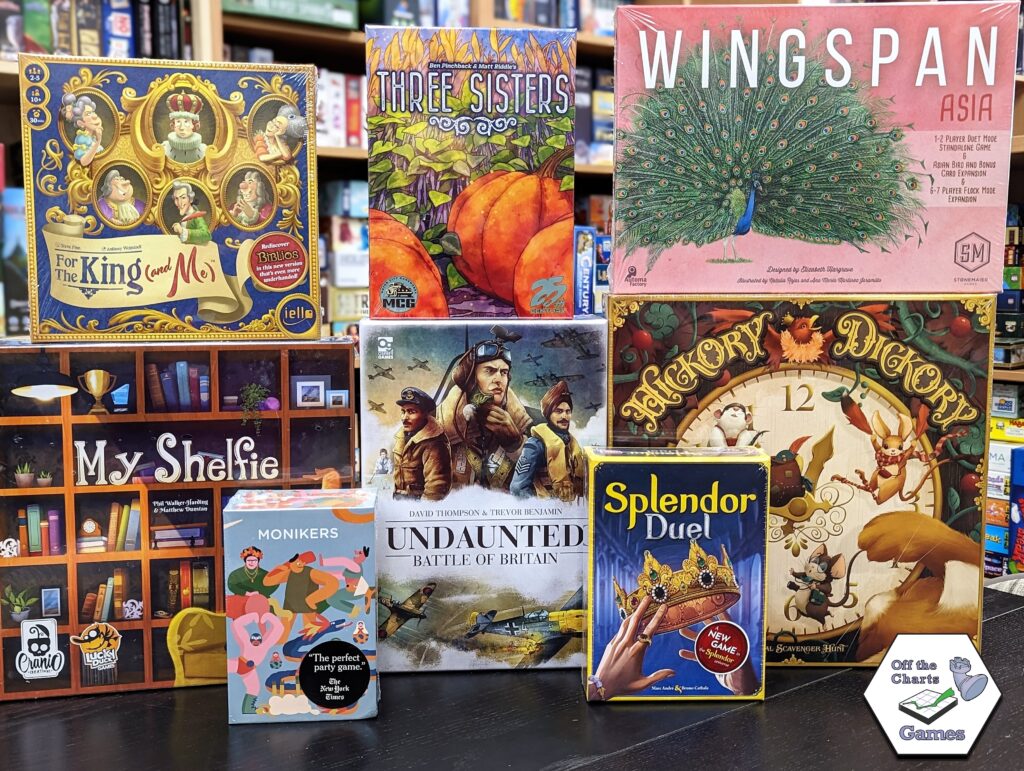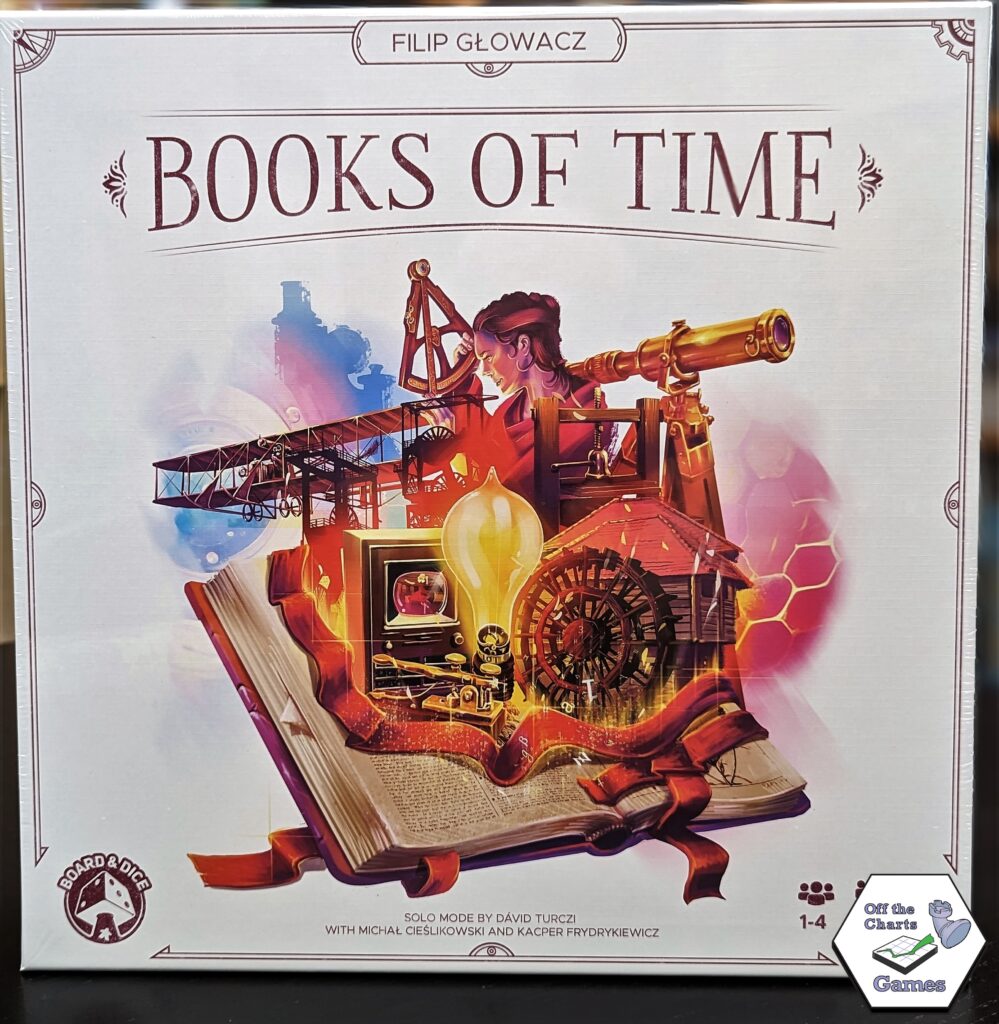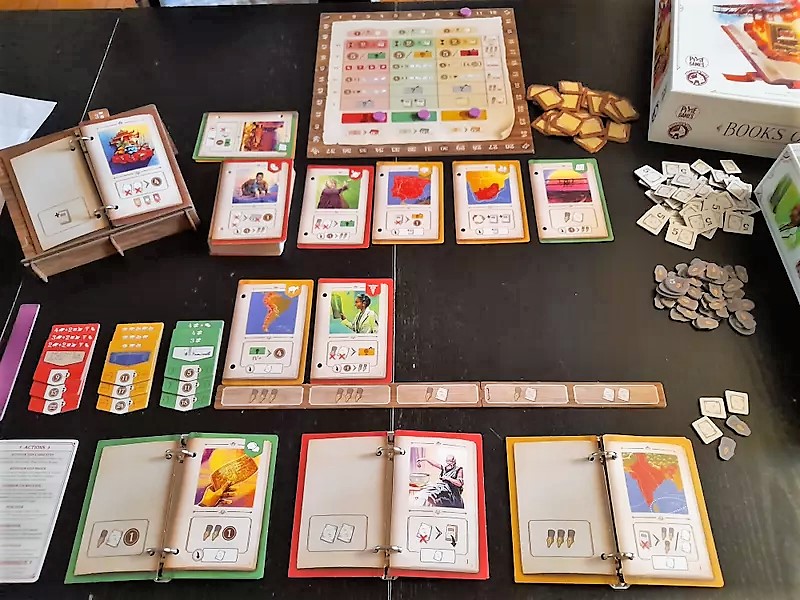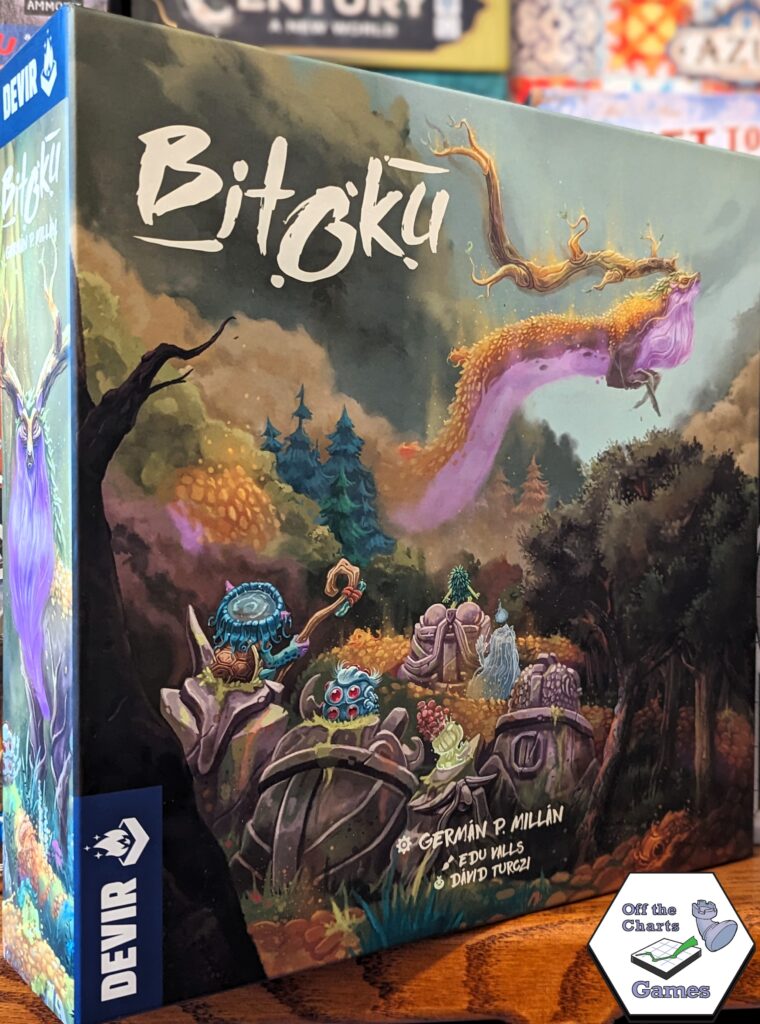
Bitoku is a game about becoming the next great spirit of the forest, or Bitoku. This is a gamers game. There are lots of moving parts and lots of ways to amass points. Every action and every component are intertwined with each other to provide an in depth and replayable gaming experience. The game has great components and very colorful artwork.
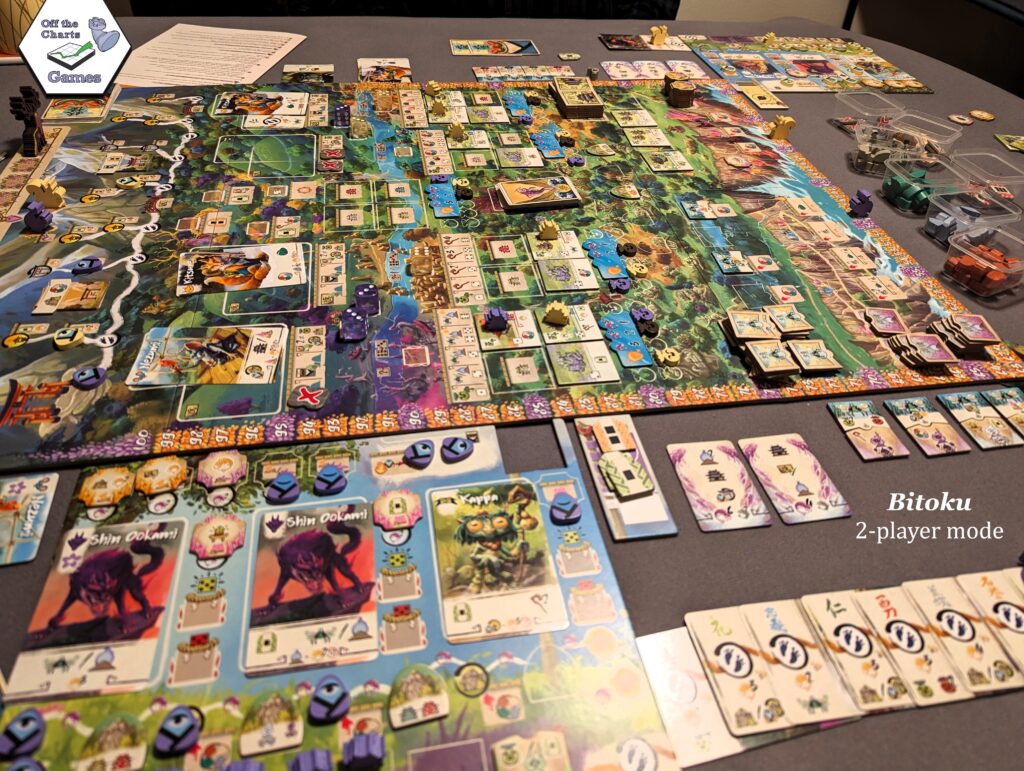
During game play, players will have 8 main actions in each of 4 years. Each player will begin the game with a player board, 3 dice, 5 starting Yokai cards (action cards), pilgrims, building counters – all in their player color, a random dragonfly tile, a random Vision card (personal objective card), resources comprised of wood, jade, and a 1-plus amulet. Begin a round by drawing 4 cards from your deck of Yokai cards and select three to play. Each card when played gives an action and unlocks one of your dice. Each unlocked die will be used as a worker to be placed on the central board in one of the five forest sections according to placement rules. These regions provide a main action and a second subsidiary action. Another action is to take an already placed die in the forest across the river to gain an additional Yokai card, or a Bitoku card to build a path, or two choices of 4 different options. The spots across the river are limited. These actions can be played in any order, but a die has to be unlocked before being played.
Each of the components has a significant impact on game play:
– Crystals come in three colors. They provide points, resources and actions. Most importantly they awaken your pilgrims.
– Mitama Spirit tiles provide points, resources, and actions. When combined with a dragonfly tile, they unlock the actions of the dragonfly.
– Dragonfly tiles provide actions, but only when combined with a Mitama Spirit tile.
– Buildings can be constructed in each of the five forest sections. They provide points and a subsidiary action when a die is played in that section. Plus, you move your Kodama along the respective Kodama track.
– Kodamas move along the five different tracks within the forest with each track scoring points based on which players’ Kodoma is the farthest on the track. These are game end points.
– Rocks tiles are used to build your rock garden. These tiles depict potential scoring symbols. Place awakened pilgrims along the path in your garden. Only rock tiles adjacent to one or more pilgrims will score end game points.
There are three types of card decks:
– Yokai cards are played from a player’s hand. Each player starts with five basic cards. Additional cards can be obtained by crossing the forest river and added to your deck. The added cards will provide stronger actions.
– Bitoku cards are used to build a path for one of your markers to advance on. Each movement grants points and an action. Each card indicates one of the seven Bitoku types which is used for end of game set collection points.
– Vision cards are personal goals. Each player starts the game with one random. More can be acquired during the game. Each card has three elements that need to be completed in order to score the associated points. Unfulfilled Vision cards will cost the player negative points.
The five forest sections for dice placement actions. All of the actions in the forest that are triggered by dice placement also can be triggered by a Yokai card play.
1. Acquire Mitama or Dragonfly tiles by paying the appropriate cost in resources.
2. Gain movement along your Bitoku card path, on any of the Kodama tracks, and along the Wisdom path with an awakened pilgrim. The Wisdom path provides benefits.
3. Gain resources.
4. Construct buildings or acquire crystal tokens by paying the appropriate cost in resources. Crystal tokens score end of game points as well as gain you either benefits during game play or additional end game points.
5. Section with a spot gain either a resource, additional action, dice adjustor amulets, Vision card, or first player token.
Bitoku features a little deck building, worker placement, action selection, point-to-point movement, and set collection. The challenge is to figure when to play a card, or a die, or to move a die across the river. If you want a specific Yokai or Bitoku card, it will take three of your eight actions: 1) play a Yokai card and unlock a die, 2) play the unlocked die in the forest section beneath the card you want, and 3) gain the desired card. You still get all of the added actions/benefits of taking these three steps. Mechanically played, Bitoku is not hard to grasp. Finding more ways to score the most points will keep players coming back.
| CONTINUE TO CHECK IN FOR THE LATEST IN BOARD GAMES AND JIGSAW PUZZLES. |
- Located at 30 NW 2nd Street in Historic Downtown Gresham.
- We have a full range of family games, strategy games, Euro-style games, war games, card games, dice games, and more. Additionally, for the jigsaw puzzle enthusiasts we carry quality puzzles from Ravensburger, Cobble Hill, White Mountain, Dowdle, Pomegranate, and New York Puzzle Company.
We proudly serve Gresham and the greater Portland and Vancouver area.
